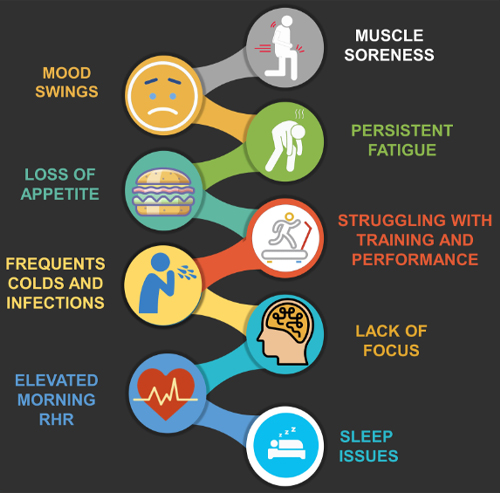
Overtraining is a condition that occurs when an individual trains beyond their body’s ability to recover. While working out regularly is essential for improving fitness and overall health, pushing your body too hard without proper rest can lead to negative effects. If you’re someone who loves working out, you might be tempted to push your limits every day. However, without balancing training with adequate recovery, you may do more harm than good.
What is Overtraining?
Overtraining happens when the volume and intensity of your workouts exceed your body’s capacity to recover. It’s particularly common among athletes or individuals who follow a high-intensity workout regime without taking sufficient rest days. This can lead to fatigue, decreased performance, and even injury, halting your progress in its tracks.
Signs You’re Overtraining
It’s important to recognize the symptoms of overtraining early so you can adjust your routine before it leads to injury or burnout. Common signs include:
– Persistent fatigue: If you’re feeling tired despite getting enough sleep, overtraining might be the cause.
– Decreased performance: You might notice you’re not able to lift as much weight, run as fast, or perform as well as you used to.
– Mood changes: Irritability, anxiety, and even depression are psychological signs of overtraining.
– Insomnia: Overtraining can disrupt your sleep patterns, making it harder for your body to recover.
– Frequent injuries: Recurring aches and pains, especially in joints and muscles, can indicate that your body isn’t getting the recovery time it needs.
How a Personal Trainer in Brighton Can Help Prevent Overtraining
A BrightonFit personal trainer can help you strike the right balance between challenging workouts and adequate recovery. They will design a tailored training program that takes into account your fitness level, goals, and physical condition, ensuring you’re pushing yourself safely without crossing the line into overtraining.
– Personalized Plans: With guidance from a personal trainer in Brighton, you’ll have a workout plan that balances intensity and rest, preventing you from overdoing it.
– Injury Prevention: Trainers are skilled in creating routines that avoid repetitive strain and can teach you proper form, reducing the risk of injury.
– Rest Days: Many people overlook the importance of rest days. A BrightonFit personal trainer will ensure you incorporate recovery time into your routine, which is crucial for muscle repair and overall progress.
Tips to Avoid Overtraining
Even if you’re working with a trainer, it’s good to be aware of strategies that can help you avoid overtraining:
1. Listen to your body: If you’re feeling overly tired or experiencing any of the symptoms listed above, it might be time to take a break.
2. Prioritize recovery: Incorporating rest days, proper nutrition, and sleep into your routine is just as important as your workouts.
3. Mix up your workouts: Doing different types of exercise can help prevent overuse injuries and allow some muscle groups to recover while you work others.
Conclusion
Overtraining can slow your progress and lead to unwanted side effects like fatigue, mood swings, and injury. A professional personal trainer in Brighton can guide you through a well-balanced exercise program that optimizes your performance while preventing the negative impacts of overtraining. By listening to your body and working with a knowledgeable trainer, you can achieve your fitness goals without burning out.